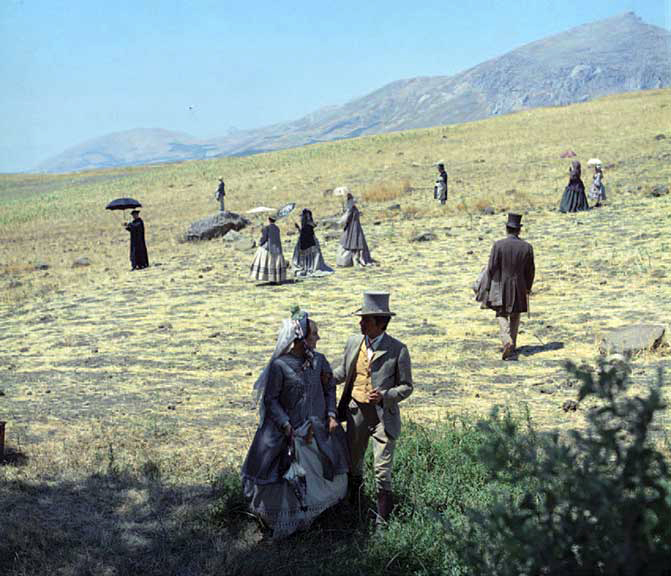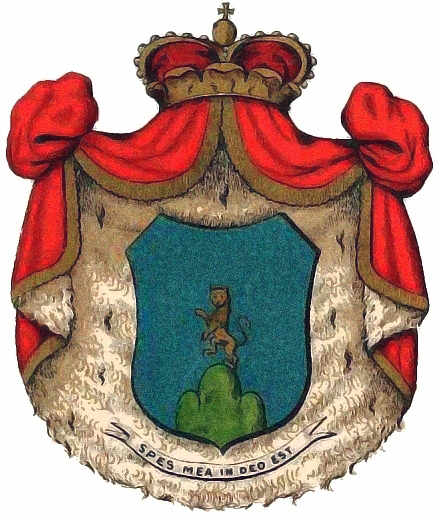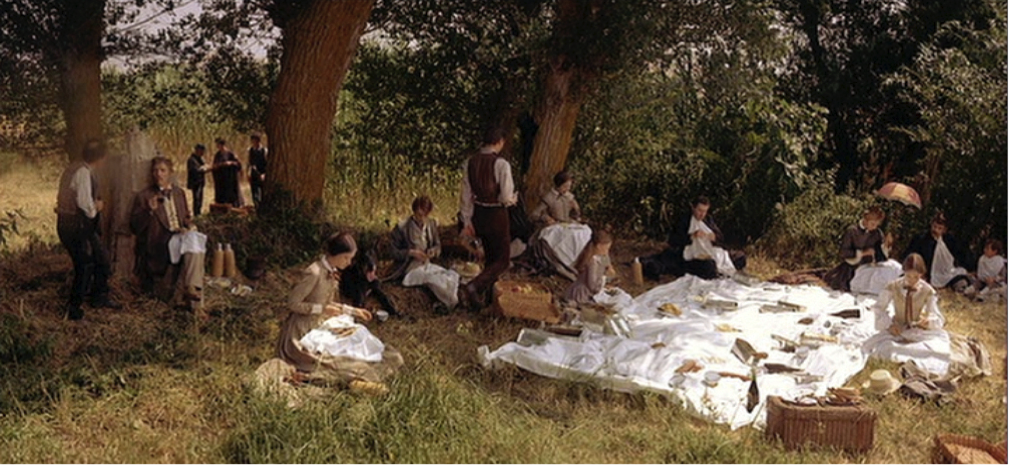It’s a three-day dusty journey filled with “a continual tension in everything” when Don Fabrizio Corbèra and his family journey from Palermo to the hill town of Donnafugata. It’s unbearably hot and dusty. They stop at awful inns and eat putrid food. But on the third day, when they break for the picnic lunch, there is an expectation that the journey is nearly over.

“Bare hillsides flaming yellow under the sun.” Photograph by Giovan Battista Poletto
Lampedusa, however, will not have it that way. Don Fabrizio Corbèra is in a funk, outwardly resolute but inwardly believing that “all” Sicilian expression really fulfills a wish for oblivion and death. “The real problem,” Don Fabrizio thinks, “is how to go on living this life of spirit in its most sublimated moments, those moments that are the most like death.”
The picnic, then, is a metaphor of Don Fabrizio’s condition, pleasant enough outwardly but inwardly crumbling and disillusioned. They set “tablecloths out on the straw leftover from the threshing in the oblong shade of the building,” of what remains of a decrepit Corbèra estate. Don Fabrizio misses the symbolism of the derelict house and the massive sagging courtyard door. Most of all, he does not notice that the carved figure of a prancing gattopardo, or serval, on the family crest above the lintel has broken legs.

The prancing gattopardo. The motto translates as “My hope is in God.”
Lucchino Visconti’s screenplay for The Leopard follows Lampedusa’s intentions. Visconti provides ample heat, dust, and harshness in the hilly terrain. But making the picnic comfortable, Visconti omits Lampedusa’s negative symbolism, all of which adds to Don Fabrizio’s sense of personal and social decay.
Visconti’s picnic is congenial – a classic luncheon needs a white cloth spread on the grass sheltered by great oaks. It’s what you expect for a picnic on a hot summer day. Here, Don Fabrizio is at ease, with a white linen napkin across his knees, and he is sitting in a chair back against a tree. Lunch is unpacked from cestini da picnic, large picnic wicker baskets, but what they eat is not really important—chicken, bread, and fruit are served on plates. There’s wine, and the bottles are arranged to secure the edges of the cloth. Overall, Visconti’s picnic seems too cheerful in the face of Don Fabrizio’s fatalism.
Featured Image: “The coachmen were walking the horses slowly around to freshen them up before watering, the lackeys laying tablecloths out on the straw leftover from the threshing in the oblong shade of the building. Luncheon began near the accommodating well. All around quivered the funereal countryside, yellow with stubble, black with burned patches; the lament of cicadas filled the sky. It was like a death rattle of parched Sicily at the end of August vainly awaiting rain.” Photograph by Giovan Battista Poletto.
See Giuseppe Lampedusa The Leopard. Translated by Archibald Colquhoun. New York: Pantheon, 1958; The Leopard. San Francisco: Arion Press 2015. Photographs by Giovan Battista Poletto are from 1963; Lucchino Visconti. The Leopard (1963). Screenplay by Pasquale Festa, Campanile, Enrico Medoli, Massimoa Franciosa, Luchino Visconti, and Suso Cecchi d’Amico based on Giuseppe Lampedusa’s novel (1958).
Also Picnicsonfilm.org.

